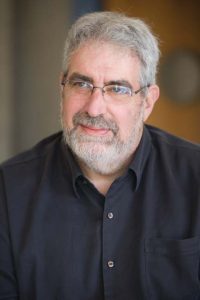
This study, led by Merril Silverstein, the Marjorie Cantor Endowed Professor of Aging Studies at Syracuse University, is made possible by a $2,898,748 award from the John Templeton Foundation and could very well reframe the debate on generational change as it addresses aspects of religious devolution about which relatively little is known.
According to Silverstein, “values traditionally associated with religion may have remained constant or strengthened in the contemporary cohort of millennials even as the religious basis for those values has weakened.” By studying the religious orientations of the millennial generation within the larger context of spirituality and prosocial values compared to previous generations, the researchers will have a deeper understanding about prosocial values and spirituality and their decoupling from religion.
In the classroom, Silverstein’s course Aging in the Context of Family Life explores trends and changes in families with an emphasis on intergenerational differences, similarities, and influences. Says Silverstein, “millennials have often been portrayed in the media as part of an egocentric, narcissistic, and amoral generation. Often ignored, however, is the reality that millennials are linked to earlier generations through their family lineages. Our focus on intergenerational family influence is what makes our investigation unique,” notes Silverstein.
This project includes Falk College co-investigators Maria Brown, assistant research professor, School of Social Work, and a faculty associate, Aging Studies Institute and Sara Vasilenko, assistant professor, Department of Human Development and Family Science. Collaborators also include Vern Bengtson, professor emeritus, University of Southern California, Joseph Blankholm, a religion scholar at University of California, Santa Barbara, and Christel Gärtner, University of Münster, a well-known scholar embarking on a multinational study of the intergenerational transmission of religion. Three Syracuse University doctoral students, one enrolled in the Maxwell School’s Sociology Department and two enrolled in Maxwell’s Social Science program, and a post-doctoral scholar who was formerly a graduate student in Falk College’s Department of Human Development and Family Science, will be involved in analyzing data and writing journal articles.
The Longitudinal Study of Generations (LSOG)–a multi-panel, multi-generational study that has collected data on three-generation families from 1971 to 2016–will be used to address research questions advanced in this project. Building on the almost 50-year LSOG study, this research team will collect survey and interview data from millennials who are members of the fifth generation in families who have participated in the study since its inception in 1971, as well as from their parents and grandparents who participated in earlier surveys that were supported by the National Institute on Aging and the John Templeton Foundation.
Silverstein’s previous Templeton-supported research indicated baby-boom parents with no religious identification tended to beget children with no religious identification. This relationship with respect to millennials and their parents and grandparents is largely unknown, despite the large percentage of religiously unaffiliated in this youngest generation. The outputs and outcomes of the project will broaden the body of knowledge around the millennial generation in relation to their parents and grandparents.
Silverstein recently received a $393,372 award from the National Institute on Aging of the National Institutes of Health to investigate the care adult children provide to their older parents under various conditions of vulnerability, especially those related to Alzheimer’s disease and other dementias. The researchers believe there may be links between early parental investments of time, money and emotion and how parents’ later-life needs are met by their adult children. Data for this project are derived from the LSOG. In light of changing family structures and growing uncertainty about reliable sources of care in later life, this project, Intergenerational Antecedents of Care to Older Adults Approaching the End of Life With and Without Dementia, will inform researchers and public policy professionals about the family as a reliable source of extended care in later life.
Jointly appointed in Syracuse University’s Falk College, Department of Human Development and Family Science, and the Maxwell School of Citizenship and Public Affairs, Department of Sociology, Professor Silverstein is a faculty associate in Syracuse University Aging Studies Institute. Earlier this year at the American Sociological Association’s Annual Meeting, Silverstein was honored with the Matilda White Riley Distinguished Scholar Award by the organization’s Section on Aging and the Life Course. This annual award honors a scholar in aging and the life course who has shown exceptional achievement in research, theory, policy analysis, or who has otherwise advanced knowledge of this field.
